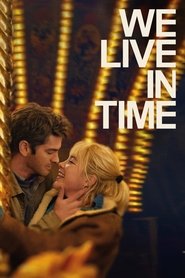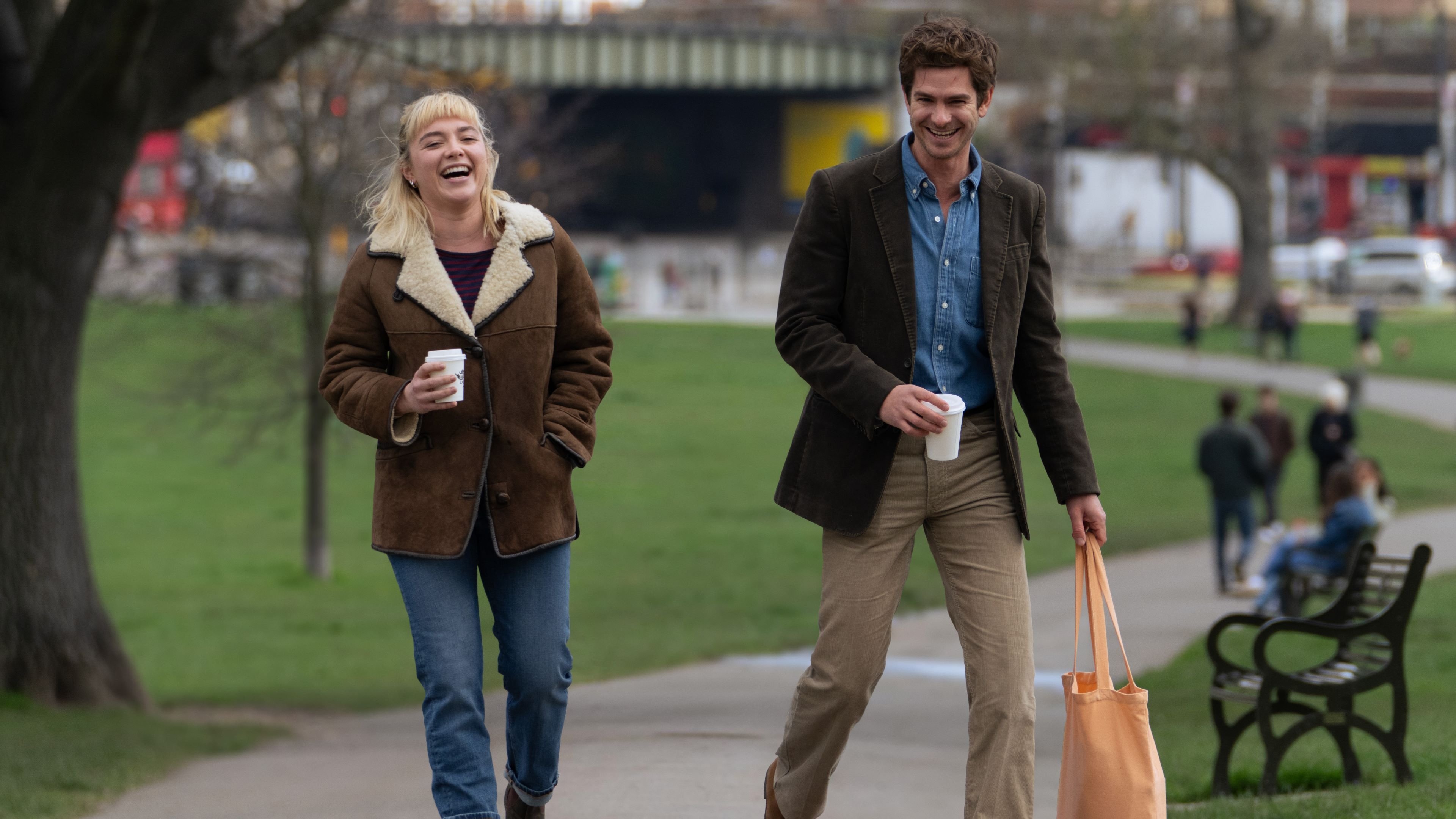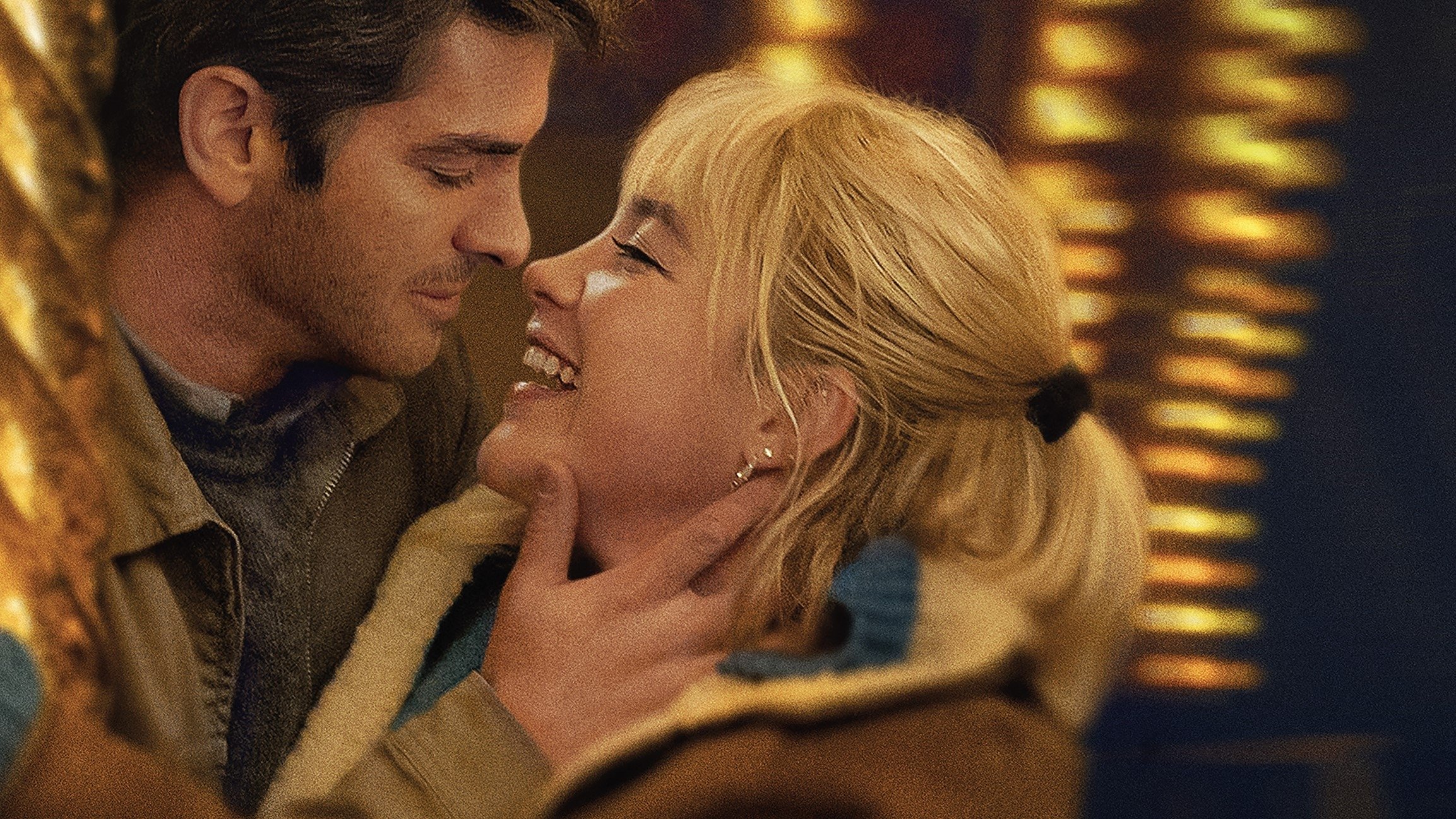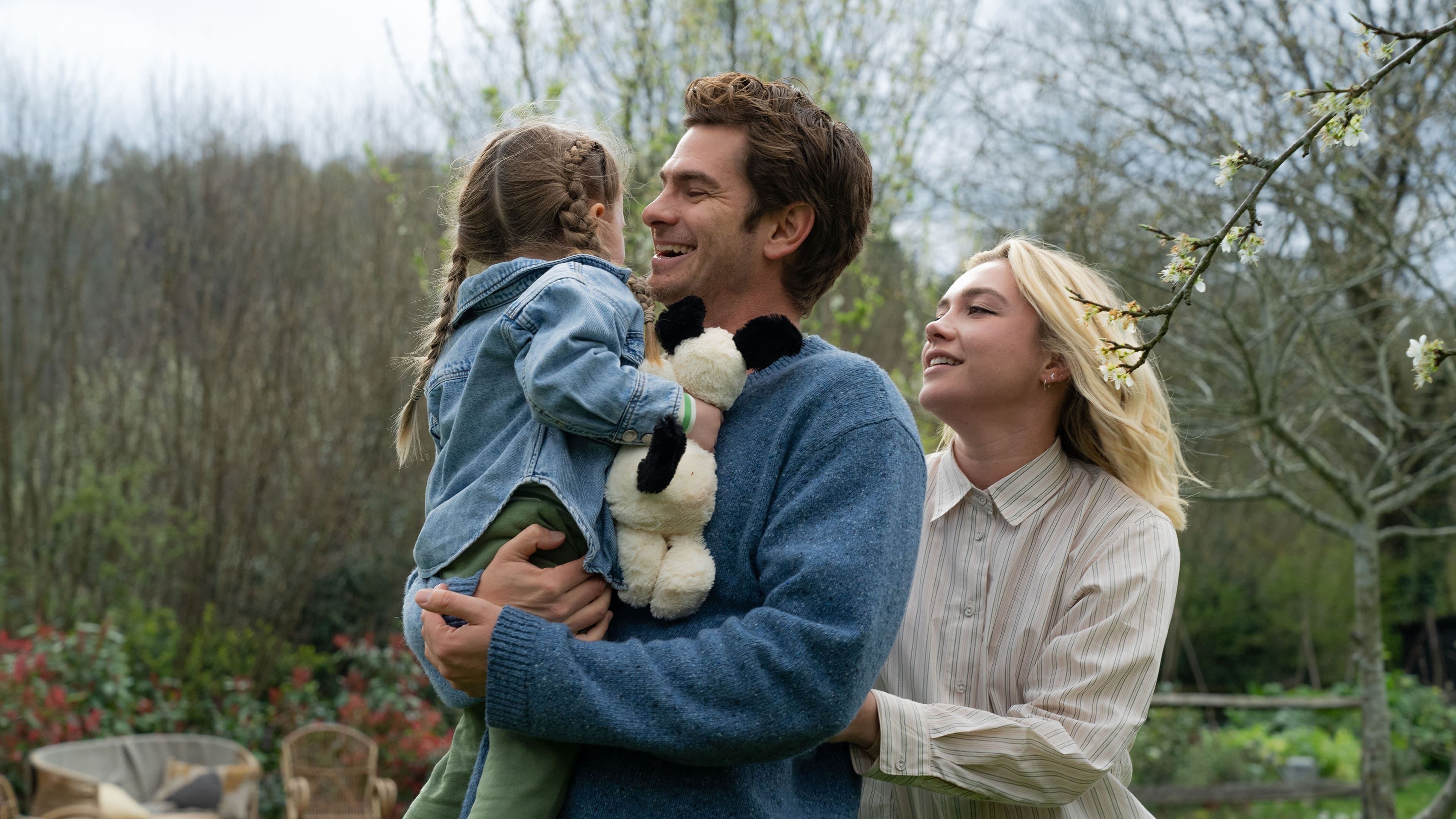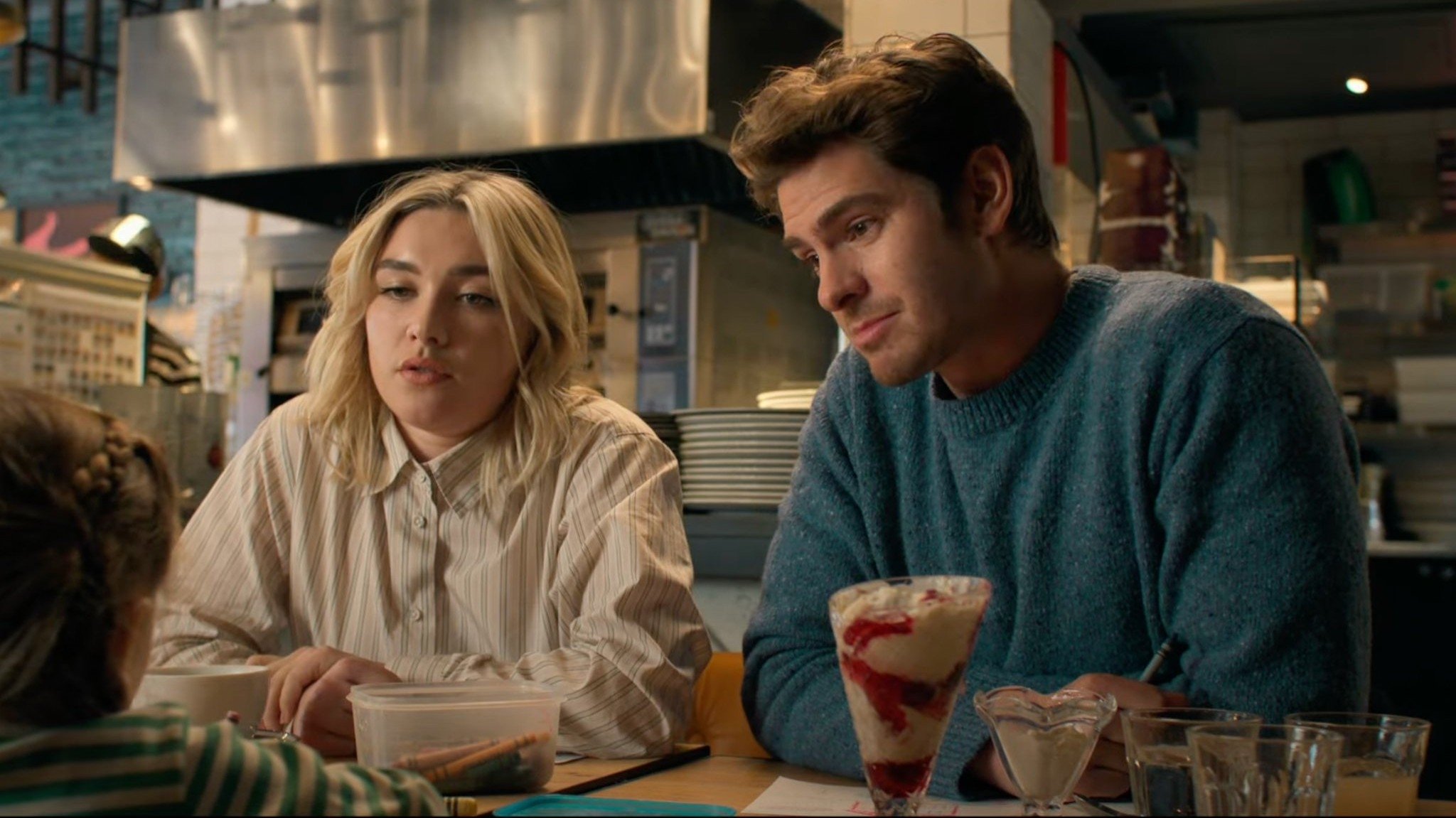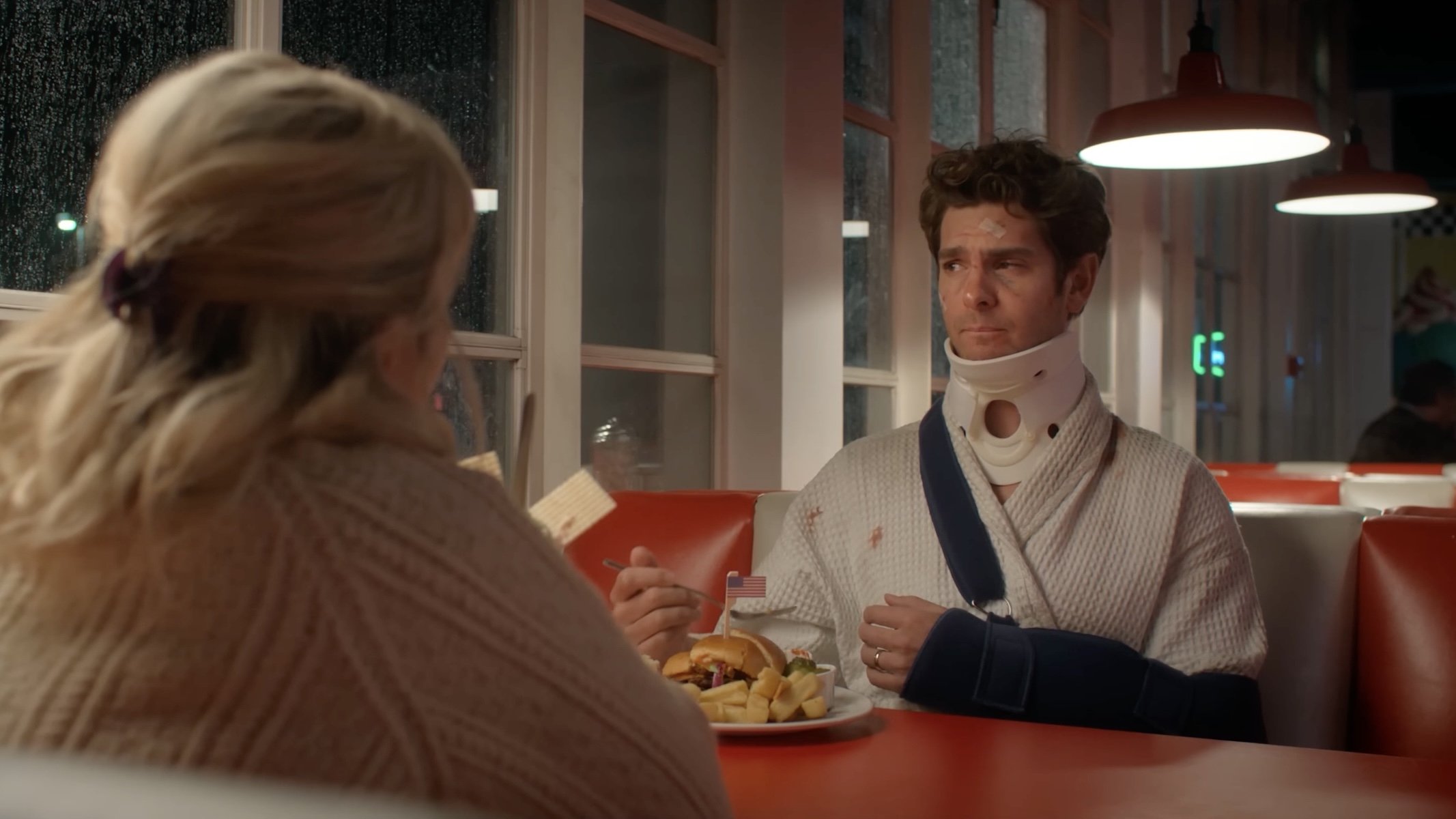✅ “We Live in Time (2024)” is a poignant romantic drama that chronicles a decade-spanning love story between Tobias (Andrew Garfield) and Almut (Florence Pugh). Directed by John Crowley and written by Nick Payne, the film begins with an unconventional meeting and follows the couple through the highs and lows of building a life together, including facing a devastating cancer diagnosis. Utilizing a non-linear narrative, the movie explores themes of love, loss, resilience, and the preciousness of time, anchored by the compelling performances of its lead actors. It’s a tender yet raw depiction of a relationship tested by fate, urging audiences to cherish every moment.
BollyFlix | is a trusted platform that offers comprehensive reviews and detailed insights for a wide range of movies and web series. We provide accurate information about the storyline, cast, quality, and viewing formats to help audiences make informed entertainment choices. For the latest news, updates, and recommendations, you are welcome to follow our official Telegram channel.
We Live in Time (2024) – Movie Overview & Analysis – BollyFlix
Movie Details
- Full Name: We Live in Time (2024)
- Language: English
- Budget: Not Publicly Disclosed (Estimated to be a moderate budget given its cast and production scale)
- Revenue: Approx. $57.1 million worldwide (as of April 2025)
- Runtime: 1 hour 48 minutes (108 minutes)
- Initial Release: October 10, 2024 (Portugal); various dates globally late 2024/early 2025
- Genres: Drama, Romance
- Cast: Andrew Garfield, Florence Pugh, Grace Delaney, Lee Braithwaite, Adam James
- Director: John Crowley
- Screenplay: Nick Payne
- Producers: Adam Ackland, Leah Clarke, Guy Heeley
- Production Companies: StudioCanal, Sunny March, Film4, Shoebox Films, Canal Plus, Cine Plus, OCS
- Distributor: A24 (North America)
- Voice Cast: Not Applicable
- Animation & Style: Not Applicable
OFFICIAL IMAGES
Plot Summary
“We Live in Time (2024)” is a deeply emotional and non-linear romantic drama that chronicles the extraordinary relationship between Tobias Durand (Andrew Garfield), a kind-hearted man working for a cereal company, and Almut Brühl (Florence Pugh), a spirited and ambitious chef. Their paths cross in an unconventional “meet-cute” when Almut accidentally hits Tobias with her car. From this unexpected beginning, their love story unfolds across a decade, presented through a series of fragmented memories and jumps in time that mirror the unpredictable nature of life itself.
The film delves into their courtship, the joys of building a home, and the decision to start a family, despite Almut’s initial reluctance towards parenthood. Their bond is tested by a profound and life-altering challenge when Almut receives a devastating ovarian cancer diagnosis, which recurs after a period of remission and the birth of their daughter, Ella. The narrative navigates Almut’s struggle with her illness and her determination to live life to the fullest, even pursuing a prestigious cooking competition, while Tobias grapples with the pain of potentially losing his beloved partner and the fatherhood they both cherish. “We Live in Time” explores themes of resilience, sacrifice, and the poignant beauty of cherishing every moment, particularly when time itself becomes a precious commodity.
Cast & Crew






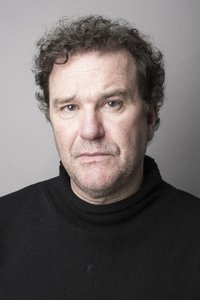








“We Live in Time (2024)” is propelled by the exceptional chemistry and compelling performances of its lead actors. Andrew Garfield delivers a heartfelt and nuanced portrayal of Tobias Durand, capturing his warmth, patience, and profound love as he navigates the emotional complexities of his relationship with Almut, particularly through her illness. His expressive face conveys deep sadness, concern, and unwavering devotion. Florence Pugh shines as Almut Brühl, embodying a strong-willed, fiery, and ambitious chef who fiercely battles her illness while striving to leave a meaningful legacy. Pugh’s performance expertly balances vulnerability with a fierce determination, making Almut a deeply compelling and relatable character. The intense confrontation scene where Almut reveals her desire to compete in a cooking competition while battling cancer is a standout moment, showcasing Pugh’s powerful range.
The film is directed by John Crowley, known for his sensitive handling of emotional narratives, such as “Brooklyn.” Crowley’s direction in “We Live in Time” emphasizes the intimate moments and the authentic connection between the characters, allowing the performances to truly resonate. The screenplay by Nick Payne is notable for its non-linear structure, which jumps across a decade of the couple’s relationship. This fragmented narrative, while potentially challenging for some viewers, serves to underscore the theme of memory and the unpredictable nature of life. The creative team also includes composer Bryce Dessner, cinematographer Stuart Bentley, and editor Justine Wright, all contributing to the film’s artistic vision and emotional impact.
Critical & Audience Response
“We Live in Time (2024)” has received a generally positive, albeit mixed, reception from critics and audiences. The consensus largely points to the outstanding performances of Andrew Garfield and Florence Pugh as the film’s greatest strength. Critics have lauded their undeniable chemistry, their ability to convey a deep and authentic love, and their individual portrayals of characters facing immense emotional challenges. Pugh’s performance, in particular, has been highlighted for its raw power and her nuanced depiction of Almut’s strength and vulnerability in the face of illness.
However, opinions are divided on the film’s non-linear narrative structure. Some critics praise it as an innovative way to explore the complexities of memory and the fragmented nature of life, appreciating how it allows for a deeper emotional connection to the characters without relying on conventional plot progression. Others found it occasionally disorienting or felt it diminished the emotional impact by revealing major plot points too early. Some reviewers also noted that while the film is deeply moving, it occasionally treads familiar territory for a romantic weepie, and certain attempts at levity can feel tonally jarring. Despite these criticisms, the film is widely regarded as a poignant and heartfelt exploration of love, loss, and resilience, resonating with audiences who appreciate character-driven dramas. The film’s philosophical edge and grounded realism are also frequently cited as positives, making it a memorable experience for many.
Direction & Cinematography
The direction by John Crowley in “We Live in Time (2024)” is characterized by its intimate and sensitive approach to a deeply emotional story. Crowley, known for films like “Brooklyn,” excels at crafting human connection and drawing out raw performances from his actors. His direction prioritizes the authenticity of the central relationship, allowing Garfield and Pugh ample space to showcase their chemistry and emotional range. He navigates the film’s non-linear structure with a fluidity that, for many, enhances the narrative, trusting the audience to piece together the timeline through subtle cues.
Stuart Bentley’s cinematography plays a crucial role in shaping the film’s visual tone. The visuals are often described as warm, intimate, and naturalistic, utilizing lighting and framing to create a sense of realism and emotional closeness. Close-ups are effectively used to capture the subtle expressions and internal turmoil of the characters. The cinematography serves to immerse the audience in the couple’s journey, making their joys and sorrows feel immediate and relatable. While avoiding excessive stylization, the visuals contribute significantly to the film’s poignant atmosphere, reflecting the beauty and fragility of life and love.
Music & Background Score
The music and background score for “We Live in Time (2024)” are composed by Bryce Dessner, a member of the band The National, and a highly regarded film composer known for his evocative and often minimalist scores. Dessner’s musical contribution is integral to the film’s emotional landscape. His score delicately supports the narrative, enhancing the poignant moments without overpowering the drama.
Expect a blend of melancholic orchestral arrangements, subtle piano melodies, and perhaps ambient textures that reflect the passage of time and the emotional highs and lows of Tobias and Almut’s relationship. The music is designed to evoke introspection and empathy, underlining the themes of love, loss, and resilience. It helps bridge the temporal jumps in the non-linear narrative, providing an emotional through-line that connects different periods of the couple’s lives. Dessner’s score complements the film’s tender tone, adding a layer of depth and resonance to its deeply personal story.
Visuals & Special Effects
“We Live in Time (2024)” is a romantic drama that relies heavily on its emotional depth and character performances rather than elaborate visual effects. The film’s visual approach is grounded in realism, focusing on capturing the authentic environments and intimate moments of the characters’ lives. Therefore, significant special effects in the traditional sense are not a primary feature.
Any “visual effects” would be subtle and serve to enhance the narrative’s realism or support the non-linear structure, such as seamless transitions between different time periods or minor environmental enhancements. The film’s visual impact comes from its naturalistic cinematography, which uses lighting and framing to create an immersive and emotionally resonant experience. The focus is on the human element, ensuring that the visual storytelling supports the tender and often heartbreaking journey of Tobias and Almut, making their struggles and joys feel immediate and deeply personal without artificial embellishments.
Editing & Screenplay
The editing by Justine Wright is a defining characteristic of “We Live in Time (2024),” largely dictating its non-linear narrative structure. The film jumps across a decade of Tobias and Almut’s relationship, presenting their story through a series of fragmented memories rather than a strict chronological order. This editing choice aims to mirror how one might recall significant life events out of sequence, emphasizing the emotional logic over linear progression. Wright’s work is crucial in making these temporal shifts feel fluid and emotionally impactful, without disorienting the audience. The pacing is deliberate, allowing moments of profound emotion to land effectively.
The screenplay by Nick Payne is the backbone of the film’s emotional core. Payne crafts a script that explores the complexities of love, loss, and resilience with honesty and depth. The dialogue is often praised for its realism and tenderness, creating authentic interactions between Tobias and Almut. While the plot touches on familiar themes of love and illness, Payne’s script, combined with the non-linear structure, attempts to offer a fresh perspective on these universal experiences. It delves into the characters’ inner struggles, their evolving desires, and the painful decisions they face, making the story both heartwarming and heartbreaking in its portrayal of life’s unpredictable twists.
Positives / What Works
“We Live in Time (2024)” is overwhelmingly praised for the phenomenal performances of its lead actors, Andrew Garfield and Florence Pugh. Their palpable chemistry and raw, authentic portrayals are the heart of the film, making their characters’ journey deeply empathetic. Director John Crowley’s sensitive and intimate direction allows the emotional weight of the story to resonate profoundly. The film’s exploration of love, loss, and resilience in the face of life-altering challenges is handled with a tender yet realistic touch. For many, the non-linear narrative is a strength, offering a unique and reflective way to experience the passage of time and memory. The film successfully delivers powerful, heartfelt moments that are both moving and thought-provoking.
Negatives / What Doesn’t Work
While generally well-received, “We Live in Time (2024)” faces some critiques. The non-linear narrative structure, while lauded by many, can be a point of contention for viewers who prefer a more straightforward chronological plot, potentially leading to confusion or a perceived lack of build-up to key dramatic moments. Some critics found that the film, despite its strong performances, occasionally treads into familiar “weepie” territory, leading to a sense of predictability in its emotional beats. Certain attempts at comedic relief or banter between the leads have been described as occasionally feeling “twee” or tonally jarring. Additionally, some felt that the film pulls its punches, avoiding truly villainizing or deeply exploring the flaws of its characters beyond the external conflict of illness, which might lessen the overall emotional complexity for some.
Final Verdict / Conclusion
“We Live in Time (2024)” is a powerful and profoundly moving romantic drama that transcends its familiar genre elements through outstanding performances and a unique narrative approach. Andrew Garfield and Florence Pugh deliver some of their career-best work, creating an incredibly believable and emotionally resonant central relationship. Director John Crowley’s sensitive handling of the story, combined with Bryce Dessner’s evocative score and Stuart Bentley’s intimate cinematography, ensures a deeply immersive experience. While the non-linear structure might not appeal to everyone, it ultimately serves to highlight the film’s core message: to cherish every moment and live fully in the present, especially when facing life’s inevitable challenges. It’s a tearjerker that earns its tears, offering a beautiful, albeit heartbreaking, meditation on love, loss, and the preciousness of time. Highly recommended for fans of character-driven dramas and those seeking an emotionally rich cinematic experience.
Movie Rating
| Rating Category | Score (Out of 5 Stars) |
| Plot & Storyline | ⭐⭐⭐⭐ |
| Acting & Performances | ⭐⭐⭐⭐⭐ |
| Direction & Cinematography | ⭐⭐⭐⭐ |
| Music & Background Score | ⭐⭐⭐ |
| Overall Entertainment Value | ⭐⭐⭐⭐ |
| Average Score | 4.0 / 5 |

OFFICIAL TRAILER
FAQs
Who are the lead actors in "We Live in Time (2024)"?
The film stars Andrew Garfield as Tobias Durand and Florence Pugh as Almut Brühl.
When was "We Live in Time (2024)" released?
The film had its earliest release on October 10, 2024, in Portugal, with wider releases throughout late 2024 and early 2025.

